|
Surviving Survival is really difficult.
Sometimes, surviving is actually worse and harder to overcome than when the actual events happened. Kelley, The Survivor Coach, knows this all too well. She has survived many things. She has lost children, molested as a child, has lost both of her parents, breast cancer, divorce after many years of marriage and an almost successful suicide attempt. Her mission in this life is to help others not only survive but THRIVE in their survival. She has created her own tools to help those who can relate to these things and those who suffer from depression and suicidal thoughts. This is her story.
3 Comments
We currently live in a society that causes us to have incredibly stressful lives. I will get into the statistics and science behind stress later, but I am sure you don’t need to be a social scientist to see what is happening today. From the domination of social media in our lives to the 24/7 workloads, our lives have become more hectic than our bodies and minds are equipped to handle. When was the last time you got on an elevator and someone was not on their phone? When was the last time you didn’t feel the need to check your work email while away from the office? Have you gone on social media and felt some type of stress related to something you weren’t accomplishing in your life as compared to your friends? The American Psychological Association and the American Institute of stress conducted a study in 2014 and the results paint a grand picture of a stressed-out society.[1] The Top Causes of Stress[2] 1. Job Pressure 2. Money 3. Health 4. Relationships 5. Poor Nutrition 6. Media Overload 7. Sleep Deprivation You are probably not surprised that job pressure is the number one cause of stress. In fact, you're probably not even surprised that money is number two on the list. I found it interesting, but not surprising, that media overload made the list, due to the social media driven nature of our society today. Social Media and StressSocial media is a fantastic development for our globally connected world. It has enabled me to build personal relationships with fantastic people all over the world. My non-profit mental health advocacy platform ConquerWorry.org™ and our podcast, “The ConquerWorry™ Show” would not have come into existence without the leverage created by social media. According to Dr. Ethan Kross, founder of the Emotion & Self Control Laboratory at the University of Michigan, there is a direct connection between heavy social media usage and happiness[3]. Professor Margaret Duffy of The University of Missouri’s School of Journalism reports that “Facebook can be a fun and healthy activity if users take advantage of the site to stay connected with family and old friends and to share interesting and important aspects of their lives. However, if Facebook is used to see how well an acquaintance is doing financially or how happy an old friend is in his relationship—things that cause envy among users—use of the site can lead to feelings of depression.”[4] The BBC reports that social media can even lead to Posttraumatic Stress Disorder (PTSD)[5]. As with most things in life, there are positives and negatives to social media. Personally, I am a big fan of building relationships through the power of social media. But it is absolutely imperative to make sure you use social media correctly in order to maintain your stress levels. A Closer Look At The Numbers The aforementioned study from The American Psychological Association and the American Institute of stress produced some interesting and telling statistics.[6] The physical symptoms of stress are felt by 77% of us, while 73% of us experience the psychological symptoms of stress. Do you feel tired all the time? You are not alone! It is reported that 51% of us experience fatigue due to stress, and 30% carry muscle tension as well. Statistics People who regularly experience the physical symptoms of stress: 77% Fatigue: 51% Headache: 44% Upset stomach: 34% Muscle tension: 30% People who experience the psychological symptoms caused by stress: 73% Irritability or anger: 50% Feeling nervous: 45% Lack of energy: 45% Feeling as though you could cry: 35% People who feel their stress has increased of the past five years: 48% People who cite money and work as their leading cause of stress: 76%
 Jay Coulter is an author, keynote speaker and mental health coach. He is the author of Conquer Worry - How To Build A Simple Daily System To Reduce Stress. He is also the founder of ConquerWorry.org™. The platform is a volunteer run organization dedicated to inspiring, educating and advocating for those who struggle with their mental health. ConquerWorry™ has almost 150,000 social media followers and we would love to have you in our community which can be found online and on most social media platforms. TWITTER | FACEBOOK | INSTAGRAM | PINTEREST | MEDIUM The ConquerWorry™ Podcast with Jay Coulter can be found on: iTunes | YouTube | Stitcher | TuneIn Radio [1] “Stress Statistics,” Last modified October 2015, http://www.statisticbrain.com/stress-statistics/
[2] “Daily Life Stress,” Last modified April 2016, http://www.stress.org/daily-life/ [3] University of Michigan Insititue for Social Research, Last modified September of 2013, http://home.isr.umich.edu/isrinnews/ethan-kross-2/ [4] “If Facebook Use Causes Envy, Depression Could Follow,” Last modified February 2015, http://munews.missouri.edu/news-releases/2015/0203-if-facebook-use-causes-envy-depression-could-follow/ [5] “Can Social Media Cause PTSD? Last modified May 2015, http://www.bbc.com/news/blogs-trending-32852043 [6] “Daily Life,” Last accessed April, 2015, http://www.stress.org/daily-life/ There are six systems in your body that are affected by stress according to Stress.org. If any of these systems came under duress, life would be difficult. But as anyone who has struggled with extreme stress can attest, typically more than one system is affected during periods of extreme stress.[7]
While you may not experience all of these symptoms, we know from statistical research that 77% of the population has experienced at least one of these challenging effects of stress. A little stress every now and then is not something to be concerned about. Ongoing, chronic stress, however, can cause or exacerbate many serious health problems. Dr. Ernesto L. Schiffrin, M.D., Ph.D of the American Heart Association said that “When stress is excessive, it can contribute to everything from high blood pressure…to asthma to ulcers to irritable bowel syndrome”[8] My research says we also need to include:
Clearly stress has a devastating on our bodies if not managed correctly. In my experience, building a simple daily plan can help relieve some of impact of stress. Jay
 Jay Coulter is an author, keynote speaker and mental health coach. He is the author of Conquer Worry - How To Build A Simple Daily System To Reduce Stress. He is also the founder of ConquerWorry.org™. The platform is a volunteer run organization dedicated to inspiring, educating and advocating for those who struggle with their mental health. ConquerWorry™ has almost 150,000 social media followers and we would love to have you in our community which can be found online and on most social media platforms. TWITTER | FACEBOOK | INSTAGRAM | PINTEREST | MEDIUM The ConquerWorry™ Podcast with Jay Coulter can be found on: iTunes | YouTube | Stitcher | TuneIn Radio [7] “Ways the Body Reacts to Stress,” Last modified 2011, http://www.stress.org/wp-content/uploads/2011/10/GR2007012200620.jpg.
[8] “Stress and Heart Health,” Last modified 2014, http://www.heart.org/HEARTORG/HealthyLiving/StressManagement/HowDoesStressAffectYou/Stress-and-Heart-Health_UCM_437370_Article.jsp?appName%3DMobileApp&sa=D&ust=1460995209781000&usg=AFQjCNGMmUQTV8MMQ4xjLCycOjtRUoQmUQ
In this inspirational podcast interview, pancreatic cancer survivor Anne Shafer shares the story of her battle and recovery. She opens up about the emotional aspects of the fight as well as practical strategies for self-care after diagnosis and through recovery. Anne also discusses the 'Whipple Procedure' and its impact on her recovery. This interview is a 'must listen' for anyone with a pancreatic cancer diagnosis, or those that love them.
Podcast Links:
www.pancreatic.org www.pancan.org Mayo Clinic on the Whipple Procedure: Link Greenville Health System’s Center for Integrative Oncology and Survivorship Article by Shaun O'Connor Edited by Maureene Danielle Post Design by Christy Zigweid Photo by using @WordSwagApp Of all the symptoms associated with anxiety, depersonalization (DP) is possibly the most persistent and overwhelming. It’s a condition that’s incredibly common yet rarely spoken about. DP happens when the mind seeks to protect itself from trauma (a bad drug trip, a car crash) and temporarily creates a sense of disconnection with the outside world. It’s only supposed to last a few minutes to allow the trauma to pass; but for many, the disconnection becomes a focal point (“Why am I feeling this way?”) and persists far beyond the initial trauma. The mind’s awareness of its own defense measure turns into a feedback loop that can last for years, even a lifetime. It’s as frightening as it sounds. You know that phrase, “crazy people don’t know they’re crazy”? Depersonalization is like that, except you know that what’s happening is crazy. Your mind is constantly going off on frightening, bizarre tangents, but your reality testing stays intact. I’ll never forget my first few months with the condition. I genuinely thought that I’d gone insane, that somehow reality had turned inside out and only I could see it. It was horrifying. There’s also retrospective guilt and examination: What brought this condition on? One puff of weed too many? A fight with my parents? A childhood trauma? There are no definite answers and so the logical brain finds itself in a state of constant, anxiety propelled flux. Sufferers find themselves sucked into this spiral of self-examination to frightening degrees. Check out any DP forum (or preferably, don’t) and you’ll find the darkest, wildest existential concepts being discussed in concrete terms. I was no stranger to that myself. At one point, I considered the possibility that I had died on the night that I first experienced depersonalization and that I was now in some purgatorial state. It seems crazy now but that type of deduction is not uncommon in the DP community. In an extreme situation with no rhyme or reason, one explanation is as good as the next. While I pretended to engage in an ordinary life, depersonalization obsessed me. While driving my car, watching tv, chatting with friends, or lying in bed, my mind feverishly raced down endless metaphysical culde-sacs. I embarked on fractal mental odysseys while feeding the dog. I concocted complex theories that existed for mere seconds at a time. It was exhausting and unbearable. And yet, when I look back on it now, after years of complete recovery, I believe that it’s primarily the condition’s very ineffability that causes it to persist. You see, everything about DP invites self-analysis and analysis is its oxygen. Without paying attention to it, the condition would dissipate just as naturally as it should have done in the first place. But it’s tough not to analyze it when everything in your experience insists that there’s an actionable way out of this. In a culture that tells us all ailments can be cured with the right medication, it only makes sense that somewhere out there is a pill or therapy that will fix everything instantly. And so, with no immediate antidote available, DP sufferers become DP researchers. They even become experts. They know the stats, the texts, and medications, yet, they can’t get rid of the DP itself. They don’t understand why this mountain of knowledge isn’t stopping the thoughts. They rarely, if ever, pause to think that it’s specifically the pursuit of an answer that’s perpetuating the condition. In the end, researching depersonalization is like a Chinese finger trap; struggling against it is pointless. Fundamentally, it’s the same thing as having a song stuck in your head. It’s a habit of thought and you can’t “logic” your way out of it. The only way to deal with it is to overwrite the habit. If you had a song stuck in your head for months, what would you do? Would you research the song in an attempt to understand its inner workings? How about if you spent all day looking at forums related to that song? If you had copies of the lyrics strewn around your house or if you actively engaged in conversation about the song every day? Of course, that wouldn’t help. Technically it’s “research,” but it’s certainly not going to fix your problem. And yet, that’s exactly what the vast majority of DP sufferers do. They often end up researching it for years on end, wondering why it never goes away. What would be much more effective would be to get rid of all traces of that song from your life. Throw out the CDs, the lyrics, the reminders. Stop looking it up. Stop discussing it. And then, with all the strength that you can muster, fill your life with new songs. Your brain will absorb the new information and naturally overwrite the thought habit of the old song. That’s what your brain is designed to do. In fact, it’s what your brain wants you to do; not to bury yourself in the ephemera and texts of anxious thought. It wants you to do what is natural and propel yourself forward in life and knowledge, and to allow old thoughts, anxious or otherwise, to dissipate naturally. About the Author
Article by Claire Adams Edited by Maureene Danielle Post Design by Christy Zigweid Photo by kroppek_pl using @WordSwagApp My sister is a mother of two and since birth she has suffered from various diseases. Recently, she was diagnosed with celiac disease, which totally crushed her because it is a lifelong condition with no cure. So, instead of feeling sorry for my sister or doing nothing, I decided to do some research and try to find out a way to help her. If she was not so motivated to get better and take back control over her own life, it would all have been worthless. Her children are her biggest motivation and give her a reason to stick around as long as possible. Motivation My sister did not want to let diseases control and ruin her life, and that of her children. She wanted to continue to be there for her kids and family, and that was a major source of her strength and motivation. I knew that I had to push her when things got tough, and motivate her on a daily basis. Otherwise, she could become depressed, which is the last thing we wanted. We both knew that if she stayed strong mentally, her physical health would improve. Sure, she had to make some sacrifices, but it was all worth it. Lifestyle Change Both of us realized that she had to change her lifestyle if she did not want to experience those dreadful symptoms of celiac disease, not to mention the other conditions she suffers from. The most important change she had to make was related with her diet. She had to exclude many foods that she adored from her diet and switch them with unprocessed, natural foods. She also had to give up eating at restaurants that she loved because of cross-contamination. Moreover, when travelling, she had to make plans ahead and even cancel a trip, if she could not find a gluten-free place to eat. When we were doing research about the disease, ways to treat it, some advice and instructions, we bumped into SCD lifestyle and also found some information about how beneficial growing your own food can be. Growing Her Own Food My sister started growing her own food for both herself and her family. She now has a very limited choice when going grocery shopping. And, she can never know for sure if manufacturers are honest or not when it comes to listing ingredients on the food label, which she has to read in full detail. The benefits of eating homegrown, natural food were numerous. Besides not going through the hassle of grocery shopping, she and the whole family were much healthier. My sister managed to keep the celiac disease symptoms to a minimum. Now we are all happier than we have ever been. She Is Much Happier Now The sacrifices and choices my sister made helped her change her life for the better. My sister, along with her entire family, are now leading a much healthier life which has made her very happy. About the Author Claire Adams is a marketing manager by day and by night she passionately fights for travel, art, and her health.
This “I AM” exercise is designed to help you create a positive mental state and reduce your negative self talk. The program takes some work on the front end, but in my experience it has provided fantastic results. This is our version of a program that the late Zig Ziglar used to teach in some of his personal development programs. I believe he called it an “affirmation” and supported and reinforced the exercise with flashcards. The affirmation was three or four paragraphs long and you are asked to repeat it in the morning and evening. The ConquerWorry™ “I AM” mantra is a simpler and customized exercise. A mantra is generally considered to be a word or sound that is repeated to aid concentration, particularly in meditation. It can also be a statement or slogan that is repeated frequently. The word finds its roots in both Hinduism and Buddhism. Building your Mantra The first step in the process requires self-reflection. I highly recommend getting up early in the morning, grabbing a cup of coffee and a blank notepad. Stay away from your computer or tablet for this exercise as it is too easy to find distractions on electronic devices. Write down a list of positive adjective that describe you. Don't be humble! Once you have an initial list, ask your spouse or a good friend for their thoughts. If you are not comfortable with sharing your list, you don’t have to, but it should not stop you from doing this exercise. Once you have your entire list of adjectives, it is very easy to construct your mantra. It looks something like this: I am adjective, adjective and adjective. I am adjective, adjective and adjective. Then, personalize the sentences. Look at the example below for ideas, but please customize it to yourself. Example: I am adventurous, creative and charming. I am also empathic, intelligent and forgiving of not only others but myself as well. Repeat this to yourself twice a day. You will be amazed at how your self-talk changes!
 Jay Coulter is an author, keynote speaker and mental health coach. He is the author of Conquer Worry - How To Build A Simple Daily System To Reduce Stress. He is also the founder of ConquerWorry.org™. The platform is a volunteer run organization dedicated to inspiring, educating and advocating for those who struggle with their mental health. ConquerWorry™ has almost 150,000 social media followers and we would love to have you in our community which can be found online and on most social media platforms. TWITTER | FACEBOOK | INSTAGRAM | PINTEREST | MEDIUM
The ConquerWorry™ Podcast with Jay Coulter can be found on: iTunes | YouTube | Stitcher | TuneIn Radio |
Build Your Action Based Stress Reduction System
Popular PodcastsOlympian Suzy Favor Hamilton - From Fame to Prostitution to Advocacy
Hall of Fame Basketball Star Chamique Holdsclaw on Mental Resilience Diana Nightingale on her husband Earl Nightingale's Principles for Mental Health Success JoAnn Buttaro on Date Rape & PTSD Survival Story: Its Never Too Late Gabe Howard on BiPolar Advocacy Phil Fulmer on Teen Suicide Prison, Bipolar and Mania with Andy Behrman Columbia Univeristy's Dr. Rynn on OCD Archives
March 2018
Categories
All
|

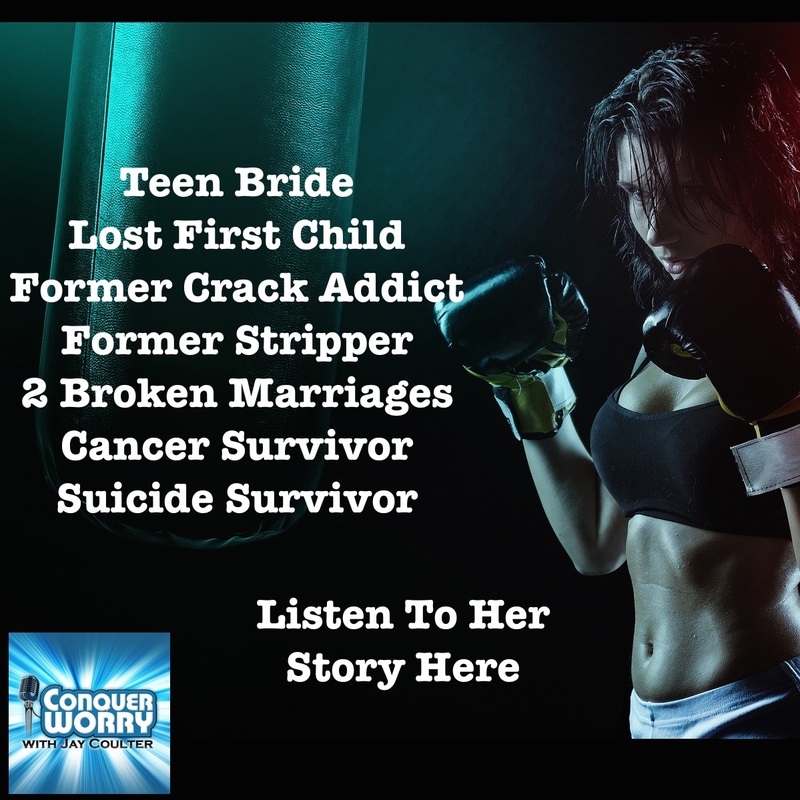


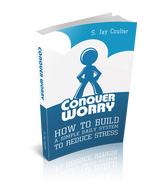
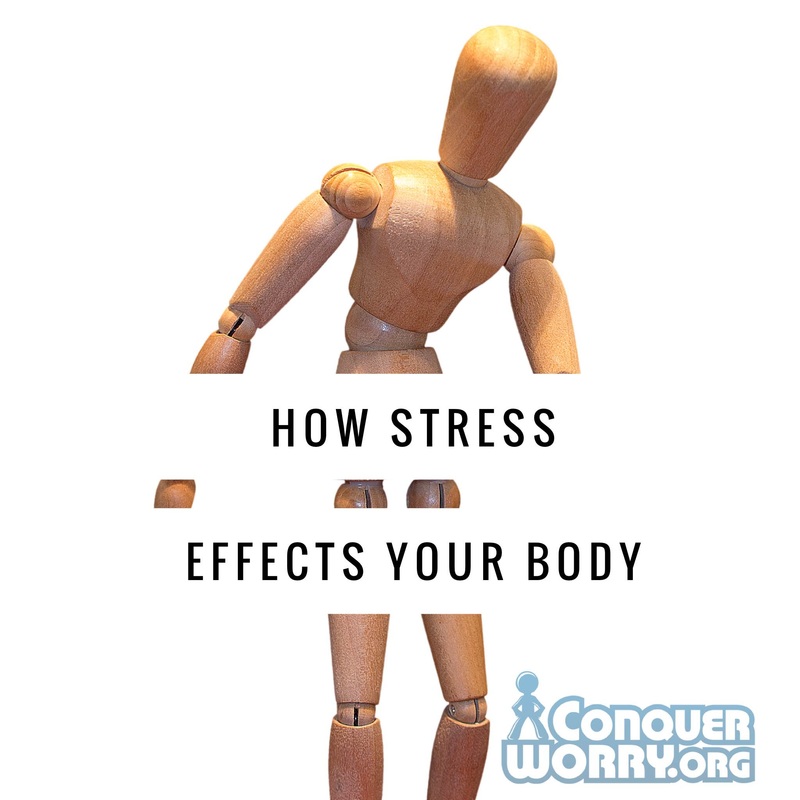
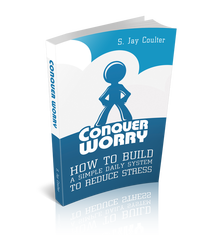


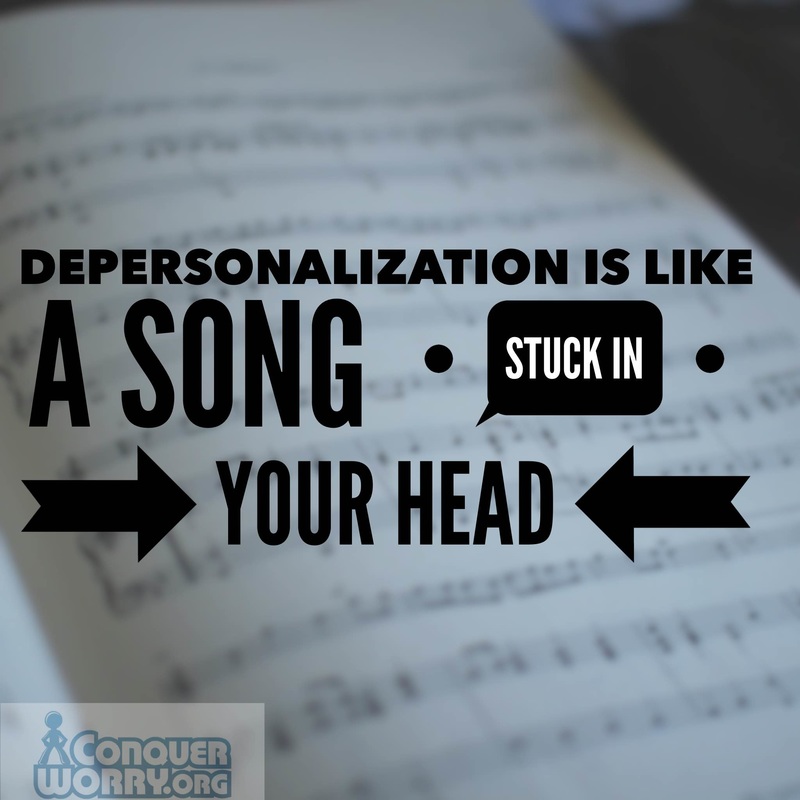



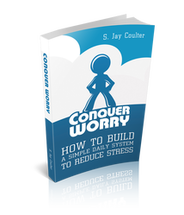

 RSS Feed
RSS Feed





